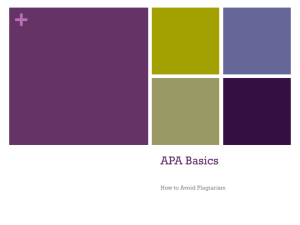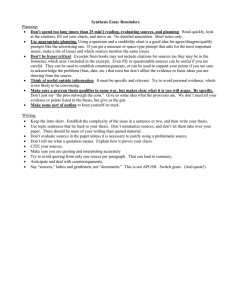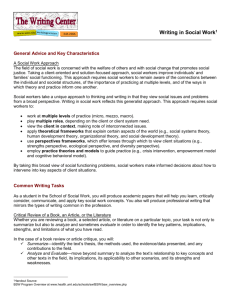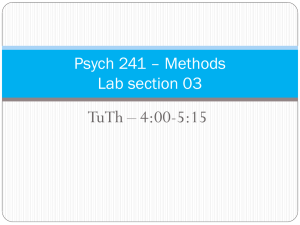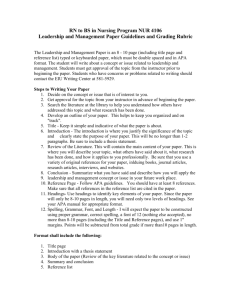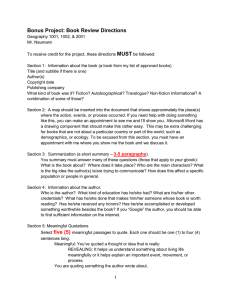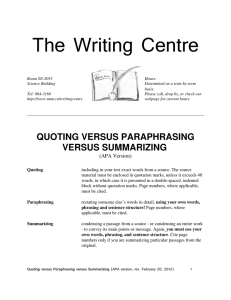Document 10602093
advertisement
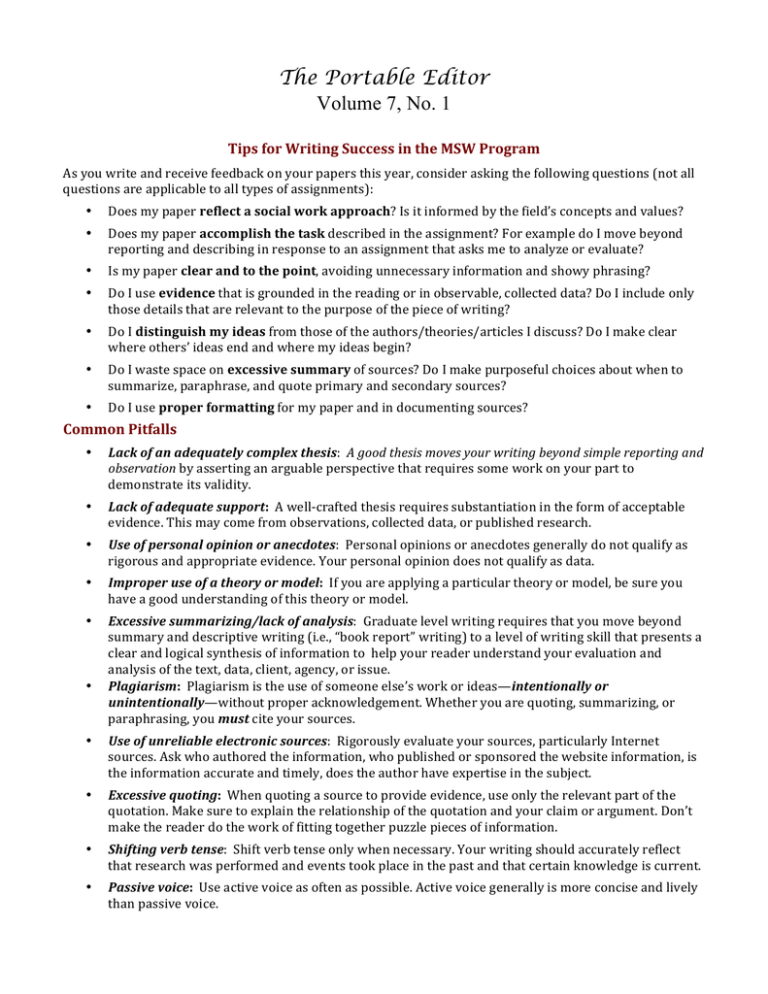
The Portable Editor Volume 7, No. 1 Tips for Writing Success in the MSW Program As you write and receive feedback on your papers this year, consider asking the following questions (not all questions are applicable to all types of assignments): • Does my paper reflect a social work approach? Is it informed by the field’s concepts and values? • Does my paper accomplish the task described in the assignment? For example do I move beyond reporting and describing in response to an assignment that asks me to analyze or evaluate? • Is my paper clear and to the point, avoiding unnecessary information and showy phrasing? • Do I use evidence that is grounded in the reading or in observable, collected data? Do I include only those details that are relevant to the purpose of the piece of writing? • Do I distinguish my ideas from those of the authors/theories/articles I discuss? Do I make clear where others’ ideas end and where my ideas begin? • Do I waste space on excessive summary of sources? Do I make purposeful choices about when to summarize, paraphrase, and quote primary and secondary sources? • Do I use proper formatting for my paper and in documenting sources? Common Pitfalls • Lack of an adequately complex thesis: A good thesis moves your writing beyond simple reporting and observation by asserting an arguable perspective that requires some work on your part to demonstrate its validity. • Lack of adequate support: A well-­‐crafted thesis requires substantiation in the form of acceptable evidence. This may come from observations, collected data, or published research. • Use of personal opinion or anecdotes: Personal opinions or anecdotes generally do not qualify as rigorous and appropriate evidence. Your personal opinion does not qualify as data. • Improper use of a theory or model: If you are applying a particular theory or model, be sure you have a good understanding of this theory or model. • Excessive summarizing/lack of analysis: Graduate level writing requires that you move beyond summary and descriptive writing (i.e., “book report” writing) to a level of writing skill that presents a clear and logical synthesis of information to help your reader understand your evaluation and analysis of the text, data, client, agency, or issue. Plagiarism: Plagiarism is the use of someone else’s work or ideas—intentionally or unintentionally—without proper acknowledgement. Whether you are quoting, summarizing, or paraphrasing, you must cite your sources. • • Use of unreliable electronic sources: Rigorously evaluate your sources, particularly Internet sources. Ask who authored the information, who published or sponsored the website information, is the information accurate and timely, does the author have expertise in the subject. • Excessive quoting: When quoting a source to provide evidence, use only the relevant part of the quotation. Make sure to explain the relationship of the quotation and your claim or argument. Don’t make the reader do the work of fitting together puzzle pieces of information. • Shifting verb tense: Shift verb tense only when necessary. Your writing should accurately reflect that research was performed and events took place in the past and that certain knowledge is current. • Passive voice: Use active voice as often as possible. Active voice generally is more concise and lively than passive voice. Handout adapted for location, APA Style, and emphasis added Source: University of Montana Writing Center, College of Health Professions & Biomedical Sciences at www.health.umt.edu/schools/sw/BSW/bsw_overview.php Need help navigating APA style rules? Check out this easy-­‐to-­‐understand website at Lansing Community College Library: http://www.lcc.edu/library/help/citation/apaonline.aspx The site offers excellent examples, and includes page numbers for the applicable sections of the APA manual. Find additional great tips, PowerPoint presentations, and other resources to help improve your writing at the School of Social Work’s Writing Resource page: http://ssw.unc.edu/students/writing Need One-­‐on-­‐One Writing Support? Please email to schedule an appointment: soswwritingsupport@gmail.com

